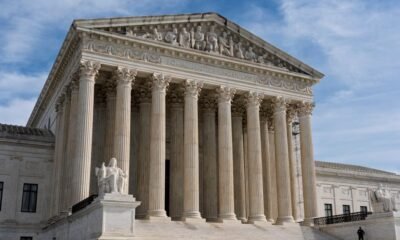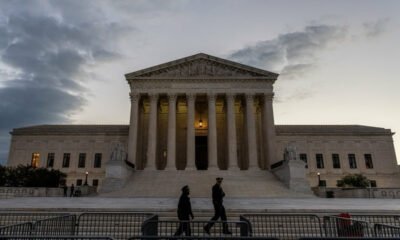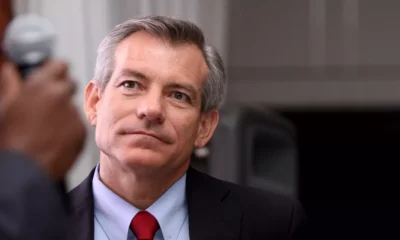chief of staff
Trump’s Ex-Chief of Staff Declares Immunity in Fake Electors Scandal

Mark Meadows, former White House chief of staff under Donald Trump, is asserting his immunity from prosecution related to Arizona’s fake elector scheme. He contends that his actions fall within the scope of his official duties, as articulated by his attorney, Ann Chapman.
Chapman filed a motion in Maricopa County Superior Court, requesting Judge Sam Myers to separate Meadows’ claims from those of other defendants in the case, led by Attorney General Kris Mayes. The allegations include conspiracy and fraud tied to efforts to submit documents to Congress that falsely stated Trump won the 2020 election in Arizona, despite Joe Biden’s victory by over 10,000 votes.
Chapman wants the court to dismiss the case against Meadows entirely. She argues that any actions he took were in line with his responsibilities as chief of staff, thus shielding him from state law violations.
“Meadows held no role in the president’s reelection campaign,” Chapman stated, emphasizing his duty to coordinate Trump’s schedule with campaign activities.
Chapman’s defense hinges on a U.S. Supreme Court ruling that grants the president and his aides immunity from criminal prosecution for actions taken within their constitutional authority. She asserts this principle extends to Meadows, shielding him from state jurisdiction.
Previously, Chapman argued the same position before U.S. District Court Judge John Tuchi, who ruled that Meadows’ conduct, as detailed in the indictment, exceeded any legal protections. The indictment outlines actions by Meadows and others to create an “alternate” slate of electors contrary to the election results.
Judge Tuchi determined that Meadows’ communications regarding the scheme did not fit the duties associated with his role. He noted, “The state has not indicted Mr. Meadows for merely facilitating communication… Instead, the state has indicted Mr. Meadows for allegedly orchestrating and participating in an illegal electioneering scheme.”
Tuchi rejected any notion of setting a precedent that could enable federal officials to evade state accountability. He stated, “The court concludes that the conduct charged in the state prosecution does not relate to Mr. Meadows’ color of former office.”
Undeterred by Tuchi’s ruling, Chapman reiterated her position in state court, arguing that communications cited in the indictment were part of Meadows’ official duties. She insists that given the Supremacy Clause, the onus is on the state to disprove the immunity claims.
“A contrary rule would chill any federal official’s conduct,” Chapman argued, emphasizing the need for open communication related to official responsibilities.
As of now, there has been no response from Mayes’ office regarding the immunity claim. The future of the indictment against Meadows remains uncertain.
Earlier this month, Judge Myers returned the case to the grand jury due to flaws in the original indictment, including the omission of the Electoral Count Act of 1887. This ruling is significant as some defendants argue they intended to provide an alternate slate of electors rather than commit fraud.
Myers has allotted Mayes’ office 60 days to contest his ruling, which could alter the trajectory of the case involving Meadows and the other defendants.


















